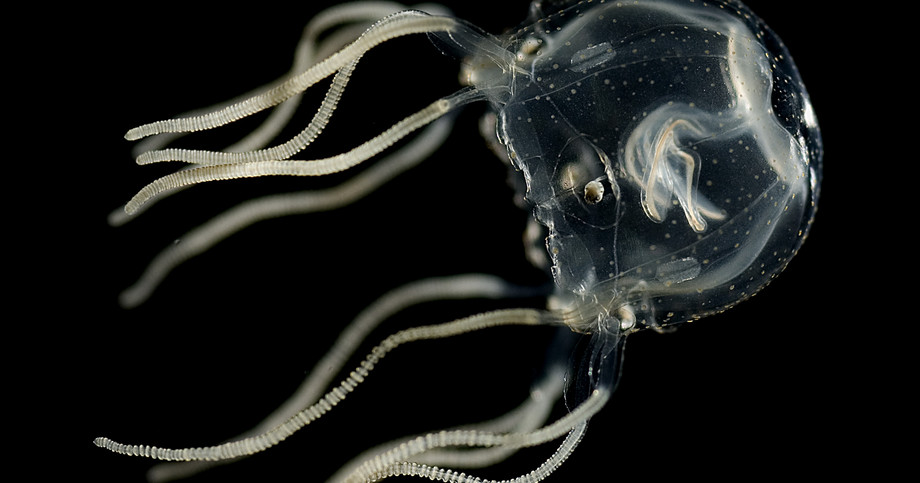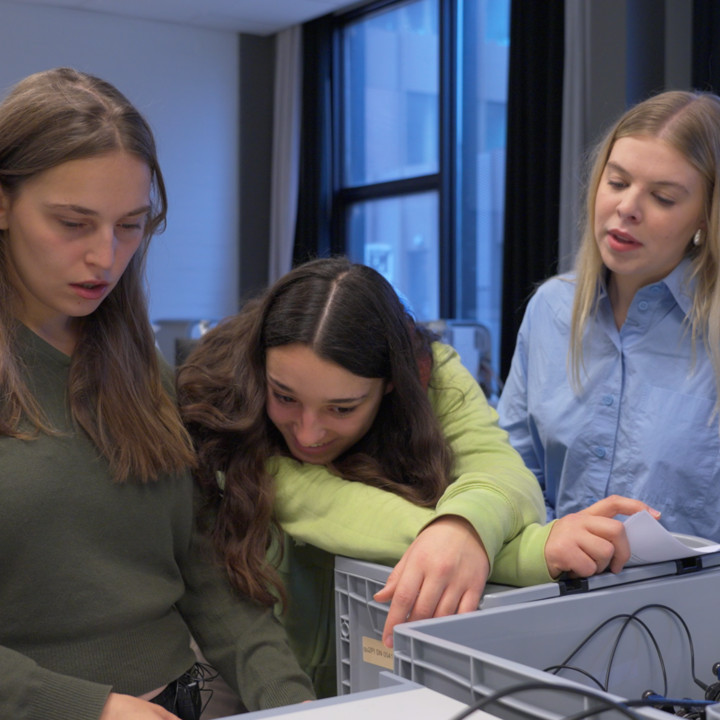Jellyfish Can Remember and Learn Without a Central Brain

The box jellyfish is a type of jellyfish about the size of a fingernail. This simple jellyfish has no central brain but instead has a collection of nerves around its many eyes. The box jellyfish and its relatives, the polyps, have always been seen as simple animals with limited learning abilities. While a human brain has 100 billion nerve cells, this type of jellyfish only has 1,000 nerve cells to control its behavior. But the box jellyfish is much smarter than previously thought.
Jellyfish Can Learn From Their Mistakes
The box jellyfish lives in the Caribbean, where it swims around in the murky waters of the mangroves. Here, it uses its vision to hunt copepods among the mangrove roots. This hunt is dangerous for the box jellyfish. If it collides with the mangrove roots, the roots can cause significant damage to the jellyfish's soft body. The box jellyfish must therefore turn away from the roots at the right time to optimize its hunting yield and avoid a collision.
But how can such a simple animal survive in an environment with so many challenges? This is what Anders Garm decided to investigate together with a group of Danish and German researchers.
“In a behavioral arena in the laboratory, we created a marine environment that resembled the jellyfish's natural habitat. The exception was that we manipulated the imitation of the roots to visually appear farther away than they actually were. After three to five attempts with collisions, the jellyfish realized they could not trust their eyes and subsequently changed their behavior. Thus, after a few attempts, the jellyfish were able to learn from their mistakes and exhibited advanced learning, what we call operant conditioning,” says Anders Garm.
New Knowledge About Basic Nerve Functions and Memory Formation
The research revealed that the box jellyfish, without a brain and with a simple nervous system, is capable of learning about as quickly as a fruit fly or a mouse. Previously, it was believed that such learning required advanced nervous systems and a central brain.
Due to its very simple nervous system, researchers believe that the box jellyfish could become important for research into basic nerve functions, especially concerning learning and memory formation.
“The jellyfish’s basic nervous system makes it easier to study than most other animals. It can shed new light on the early evolutionary roots of learning and may eventually help us better understand diseases such as dementia,” explains Anders Garm.
The research project Learning Without a Conventional Brain, led by Associate Professor at the University of Copenhagen Anders Garm, has received a grant of two million DKK from the Villum Experiment Programme.



